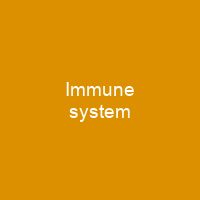The Immune System: A Network of Protection
Imagine your body as a fortress, constantly under siege by invaders like viruses and bacteria. The immune system, much like the walls and guards of this fortress, is designed to protect you from these threats. But what exactly does it do? How does it work its magic?
The Layers of Defense
Think of your skin as the first line of defense – a physical barrier that keeps out most invaders. But there’s more to this system than meets the eye. The immune system has layers, each with its own unique role in keeping you safe.
Surface Barriers
These include mechanical barriers like your skin and mucous membranes, which act as a physical shield against pathogens. Chemical barriers such as antimicrobial peptides and enzymes also play a crucial role by breaking down harmful substances. Biological barriers, including the friendly bacteria that live in our gut, compete with harmful invaders for space.
The Innate Immune System: A Preconfigured Response
When an invader breaches these defenses, the innate immune system springs into action. This is a preprogrammed response designed to deal with common threats. It includes phagocytes (like macrophages and neutrophils) that engulf and destroy pathogens.
Innate Immune Cells
These cells, such as phagocytes, innate lymphoid cells, mast cells, eosinophils, basophils, and natural killer (NK) cells, work together to fight off invaders. Phagocytes patrol the body searching for pathogens but can be called to specific locations by cytokines.
Inflammation: The Body’s First Response
When an invader is detected, inflammation occurs – a response characterized by redness, swelling, heat, and pain. This is your body’s way of isolating the area to prevent further damage and recruit immune cells.
The Adaptive Immune System: Learning from Experience
While the innate system provides immediate but non-specific responses, the adaptive immune system offers a more targeted approach. It learns to recognize specific molecules (antigens) through antigen presentation mechanisms involving MHC molecules. This allows for stronger and more specific immune responses.
B Cells and T Cells: The Key Players
These cells are the stars of the adaptive system. B cells produce antibodies that recognize specific antigens, while T cells come in two flavors: helper T cells (which regulate other cells) and killer T cells (which directly attack infected cells).
The Role of Memory Cells
When activated, some B and T cells become memory cells. These long-lived cells remember specific pathogens encountered earlier, providing a faster response upon re-exposure.
Passive Protection: The First Line of Defense for Newborns
Newborn infants have no prior exposure to microbes and are vulnerable. They rely on passive protection from their mothers through IgG antibodies in the placenta, breast milk, or artificially transferred immunity.
The Immune System and Other Systems: A Team Effort
The immune system interacts with other systems like the endocrine and nervous systems. Hormones can modulate the immune response, while sleep affects it by changing the sleep cycle. Physical exercise also has a positive impact on the immune system.
Challenges to Host Defense
Failures of host defense occur in three broad categories: immunodeficiencies (due to aging or genetic mutations), autoimmunity (where the body attacks itself), and hypersensitivities (overreactions to harmless substances).
Evolution and Evasion
The immune system has evolved over time, with mechanisms found in vertebrates also present in deuterostomes and other organisms. Pathogens have developed strategies to evade the immune response, including physical barriers, type II and III secretion systems, intracellular pathogenesis, and more.
Immunology: A Science of Protection
The study of immunology began with early observations on immunity during the plague of Athens. Key figures like Louis Pasteur and Robert Koch made significant contributions to our understanding of how vaccines work and what causes infectious diseases.

Understanding the immune system is crucial for protecting ourselves from a myriad of threats. From the physical barriers that keep out invaders to the complex adaptive responses that target specific pathogens, this network of protection is truly remarkable. By studying and enhancing our knowledge of immunology, we can better defend against diseases and improve overall health.
You want to know more about Immune system?
This page is based on the article Immune system published in Wikipedia (retrieved on December 16, 2024) and was automatically summarized using artificial intelligence.





